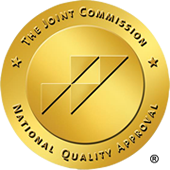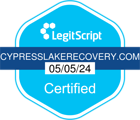Adventure Therapy For Addiction: Fishing
Adventure therapy has emerged as a powerful approach to treating addiction, blending traditional therapeutic techniques with outdoor activities that promote healing and personal growth. One of the most engaging forms of adventure therapy is fishing, which not only provides a unique setting for recovery but also fosters a connection to nature that can be profoundly therapeutic.
At Cypress Lake Recovery, we’re proud to offer our very own fishing program as part of our overall adventure therapy program. Our catch-and-release program allows those visiting for addiction treatment and mental health support to still get in some time on the lake. Individuals will be able to fish for largemouth bass, crappie, catfish, and perch all year round. Fishing gear is provided, and individuals can also bring their own gear from home.
In addition to weekly supervised fishing sessions, it is available as a recreational option for evenings and weekends. Our facility’s Hall of Fame features photos of past participants showing off their big catch — and there’s always room for one more!

What is Adventure Therapy?
By stepping outside of traditional therapy settings, individuals often find new ways to express themselves and confront their underlying issues. Adventure therapy can include a variety of activities, such as hiking, rock climbing, and fishing.
The core of adventure therapy lies in its ability to create a supportive environment where individuals can learn new skills, build resilience, and foster connections with others. This holistic approach not only addresses the symptoms of addiction but can encourage personal growth and self-discovery. It’s often a preferable choice for people who don’t usually like the traditional setting and customs of therapy.
Contact Our Admissions Team Today

How Fishing Works as Adventure Therapy for Addiction
Fishing offers a multitude of therapeutic benefits that can aid in recovery from addiction. The act of fishing isn’t just about catching fish; it includes a range of experiences that can foster healing and personal development.
One of the most significant aspects of fishing as adventure therapy is the opportunity it provides to connect with nature. Being outdoors, surrounded by the beauty of lakes, rivers, and forests, can have a calming effect on the mind and body. This natural setting allows individuals to escape the stresses of everyday life, creating a peaceful environment conducive to reflection and healing.
Nature has a unique ability to ground individuals, helping them to reconnect with themselves and the world around them. This connection can be particularly beneficial for those struggling with addiction, as it encourages the use of mindfulness skills (an essential component of recovery).
Weather, water levels, and fish behavior can all influence the fishing experience. Learning to adjust to these variables can help individuals develop a sense of flexibility and resilience, qualities that are crucial for overcoming the challenges of addiction. By navigating these unpredictable elements, individuals can gain confidence in their ability to handle life’s uncertainties.
Fishing provides a tranquil environment that encourages introspection. The quiet moments spent waiting for a bite can serve as an opportunity for individuals to reflect on their thoughts, feelings, and experiences. This space for reflection is vital in the recovery process, allowing individuals to confront their emotions and gain insights into their behaviors.
Fishing is an exercise in patience. It requires individuals to wait, often for long periods, before experiencing success. This waiting game can teach valuable lessons about persistence and the importance of not giving up. For those in recovery, these lessons can translate into a renewed sense of determination and commitment to their sobriety.
Fishing doesn’t always end in catching a fish or catching enough fish to share. It is a practice of being content with the activity regardless of the outcome, accepting that a person cannot control every aspect of their life. As individuals learn to appreciate the process rather than just the outcome, they can develop a healthier perspective on their recovery journey and learn to understand that setbacks (such as not catching a fish) are a natural part of growth.
Engaging in fishing as a sober hobby can provide individuals with a positive outlet for their time and energy. As they develop skills in this new hobby, they can cultivate a sense of accomplishment and purpose that may have been lacking during their struggle with addiction.
Fishing can also become a source of joy and fulfillment to help fill the void left by substance use. Fishing poses a lower risk of life-threatening injuries compared to other leisure activities, but can still help those who participate learn helpful tools for life. Having a sober hobby encourages individuals to build a new identity that is not tied to their past behaviors, reinforcing their commitment to recovery and a healthier lifestyle.
Benefits of Adventure Therapy For Addiction
Fishing often involves physical exertion, whether it’s casting a line, reeling in a fish, or navigating a boat. This physical engagement not only promotes health and fitness but also contributes to improved mental well-being. Regular physical exercise is known to release endorphins, which can enhance mood and reduce feelings of anxiety and depression.
Fishing can also foster social connections, as it is often enjoyed in groups or pairs. Sharing the experience with others can create a sense of camaraderie and support, essential for individuals in recovery. Building relationships with like-minded individuals can provide a strong support network, helping to combat feelings of isolation that often accompany addiction.
In the process of fishing and engaging with nature, individuals can embark on a journey of self-discovery. They may uncover new interests, strengths, and passions that contribute to their personal growth. This newfound self-awareness can be empowering, helping individuals to redefine their identities beyond addiction.
Adventure therapy, particularly with fishing, encourages healing outside of traditional therapeutic settings. By engaging in a hands-on, experiential process, individuals can explore their emotions and challenges in a more dynamic and engaging way. Fishing also requires a person to manage multiple factors that may scare off a fish or sabotage their ability to catch a fish, such as noise and the type of bait. The chase of reeling in a fish allows for them to practice self-management.
Adventure therapy is inherently action-centered, emphasizing doing rather than just talking. Active participation can lead to more immediate and impactful changes in behavior and mindset. For those struggling with addiction, taking action can reinforce the idea that recovery is not just a passive process but an active journey. This non-conventional approach to learning essential skills and learning how to understand themselves can be particularly appealing to those who may feel uncomfortable in standard therapy environments.
Building relationships through shared activities like fishing can be a powerful way to strengthen bonds and create lasting connections with others. Fishing can provide a unique and exciting way to spend time with a person’s wife, husband, friends, and family without putting pressure on the experience. If damage has been wrought to a relationship due to addiction, being able to engage in hobbies together (and the ability to propose something as simple as going out to catch fish) can open a door to important conversations.
By participating in fishing trips and other outdoor activities, individuals can develop essential communication and teamwork skills that can be applied to other areas of life. Shared activities like fishing can also provide a sense of community and belonging, which can be particularly important for individuals who struggle with addiction or mental health issues.
A day out on the lake to check on the trout can often seem less intimidating (or less confrontational) than asking someone to attend family therapy. It can be an easy way to ease tensions and put less pressure on both the addicted person and their family member.

Testimonials
![]()
![]()
![]()
![]()
![]()
Regina
I am so happy that I chose Cypress to begin my recovery. I have suffered for years from depression, anxiety, panic disorder, and PTSD. The programs that are offered here at Cypress have been truly phenomenal in helping me recover. I also appreciated the professional staff that are here on duty 24/7, which helps create a safe environment. Cypress Lake Recovery uses effective “one on one” methods that meet each person’s individual needs because they evaluate and have a better understanding of your personal traumatic experiences. Thanks Sabino, I am truly grateful to you and the Cypress family.
![]()
![]()
![]()
![]()
![]()
J.A.
A beautiful facility! Staff sets the tone and kindness that residents easily follow. Thank you, Cypress Lake Recovery!
![]()
![]()
![]()
![]()
![]()
Pamela
The program at Cypress Lake Recovery works! I emerged from an accumulation of unrecognized emotions, issues of trust, and unresolved grief and loss. 35-days of effective integration of customized quality therapy reconnected my mind, body, spirit, and I am worth it! I had masked emotions and hurtful events for decades with alcohol. At Cypress Lake Recovery I safely focused deep within to unleash harmful secrets and self-degradation. Tools of recovery were practiced, not just presented. Integrative therapies were tailored to my circumstances, thus were effective. This residential program is like no other. For me, Cypress Lake Recovery delivered what was professed. I am forever grateful for this gift of healing.
![]()
![]()
![]()
![]()
![]()
Mike
Life changing experience. Wonderful staff. Wonderful program. Thanks for everything!
![]()
![]()
![]()
![]()
![]()
Darcy
It was great to begin my recovery in a group environment with so many knowledgeable nurses, therapists, BHT’s, and others around for support. The equine therapy, challenge course, family week, and daily therapies all work together seamlessly, allowing me to leave Sabino as a healthier and stronger person!

Receive Treatment for Addiction and Mental Health at Cypress Lake Recovery
Cypress Lake Recovery provides the support and resources needed to help foster lasting change. Addiction treatment is available at various levels of engagement, so individuals can work on their personal healing while attending to their life responsibilities.
Those seeking mental health support or dual diagnosis treatment can also find relief at our beautiful lodge in East Texas. Call us today to learn more about how we can help you create and manage a new life of sobriety.
Nationally Recognized & Accredited









